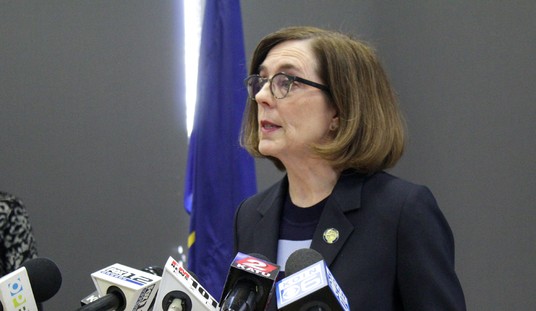The Australian reports a few inconvenient truths regarding global climate change that have yet to receive much attention from a media sold on global warming. Not only has the Earth cooled since its peak year in 1998, not only are oceans cooler than predicted, but new NASA data shows that the computer models that predicted runaway global warming were based on a fundamental error. Rather than having clouds and water vapor amplifying the warming effect of carbon in the atmosphere, it turns out that they compensate for it (via Memeorandum):
Last Monday – on ABC Radio National, of all places – there was a tipping point of a different kind in the debate on climate change. It was a remarkable interview involving the co-host of Counterpoint, Michael Duffy and Jennifer Marohasy, a biologist and senior fellow of Melbourne-based think tank the Institute of Public Affairs. Anyone in public life who takes a position on the greenhouse gas hypothesis will ignore it at their peril.
Duffy asked Marohasy: “Is the Earth stillwarming?”
She replied: “No, actually, there has been cooling, if you take 1998 as your point of reference. If you take 2002 as your point of reference, then temperatures have plateaued. This is certainly not what you’d expect if carbon dioxide is driving temperature because carbon dioxide levels have been increasing but temperatures have actually been coming down over the last 10 years.”
Duffy: “Is this a matter of any controversy?”
Marohasy: “Actually, no. The head of the IPCC (Intergovernmental Panel on Climate Change) has actually acknowledged it. He talks about the apparent plateau in temperatures so far this century. So he recognises that in this century, over the past eight years, temperatures have plateaued … This is not what you’d expect, as I said, because if carbon dioxide is driving temperature then you’d expect that, given carbon dioxide levels have been continuing to increase, temperatures should be going up … So (it’s) very unexpected, not something that’s being discussed. It should be being discussed, though, because it’s very significant.” …
Duffy: “Can you tell us about NASA’s Aqua satellite, because I understand some of the data we’re now getting is quite important in our understanding of how climate works?”
Marohasy: “That’s right. The satellite was only launched in 2002 and it enabled the collection of data, not just on temperature but also on cloud formation and water vapour. What all the climate models suggest is that, when you’ve got warming from additional carbon dioxide, this will result in increased water vapour, so you’re going to get a positive feedback. That’s what the models have been indicating. What this great data from the NASA Aqua satellite … (is) actually showing is just the opposite, that with a little bit of warming, weather processes are compensating, so they’re actually limiting the greenhouse effect and you’re getting a negative rather than a positive feedback.”
Duffy: “The climate is actually, in one way anyway, more robust than was assumed in the climate models?”
Marohasy: “That’s right … These findings actually aren’t being disputed by the meteorological community. They’re having trouble digesting the findings, they’re acknowledging the findings, they’re acknowledging that the data from NASA’s Aqua satellite is not how the models predict, and I think they’re about to recognise that the models really do need to be overhauled and that when they are overhauled they will probably show greatly reduced future warming projected as a consequence of carbon dioxide.”
Hmm. How many have actually heard that the NASA Aqua satellite returned this kind of data? I searched the New York Times and found nothing since 2006 on Aqua — and that was just an announcement that NASA would launch more satellites to study weather. The Washington Post reported on ice loss in the Arctic just this week, but noted that Aqua shows an ice increase in the Acrtic this winter, but never reported on the other data that throws cold water on global warming.
So far, no one asserts that we have produced less carbon in the atmosphere. Global-warming activists continue to make Chicken Little predictions of catastrophe based on increases in carbon releases, especially from China and India as they modernize and industrialize. If carbon releases resulted in global warming, then the rate of increase should be constant; there definitely should be no decrease, especially given the theoretical amplification of water vapor.
Apparently, though, both assumptions have either proven incorrect or far too simplified to explain the actual impact of carbon on global temperatures. That’s not surprising, especially given the previous global-cooling scare of the 1970s and how baseless that theory turned out to be. What’s surprising is the utter lack of coverage that the new data has received. Why haven’t the same media outlets that relentlessly cover global-warming advocacy reported on the appearance of contradictory data?
Perhaps because global warming is more advocacy than science.








Join the conversation as a VIP Member